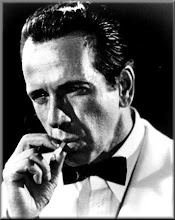 A douche bag* writes, "In no other state (referring to California) can a ruthless minority cause the chaos, disruption, pain, and near-bankruptcy that our state has suffered. A majority of the voters can end the tyranny of the minority. Democracy means majority rule. One sentence will do the job (referring to changing Prop. 13). Of course, there will be blow back. Conservatives will say, as they always do, that this is just a ruse to raise taxes. But this about democracy, not about how or whether revenues are raised. What the majority of citizens want, a majority of elected representatives will enact. The question is simple: Do you want democracy?" (1).
A douche bag* writes, "In no other state (referring to California) can a ruthless minority cause the chaos, disruption, pain, and near-bankruptcy that our state has suffered. A majority of the voters can end the tyranny of the minority. Democracy means majority rule. One sentence will do the job (referring to changing Prop. 13). Of course, there will be blow back. Conservatives will say, as they always do, that this is just a ruse to raise taxes. But this about democracy, not about how or whether revenues are raised. What the majority of citizens want, a majority of elected representatives will enact. The question is simple: Do you want democracy?" (1).Answer: NO!
Here's a link to the federal constitution (2)
Indulge me here. Click the link to the federal constitution. Hit ctrl-f on your key pad. Type in the word "democratic" or "democracy." How many hits? Zero! As it turns out, this country and the individual states that comprise it, are guaranteed a REPUBLICAN form of government. The structure of our government was based on Rome (a republic), not Athens (a democracy).
What's the difference? A republic protects minority rights, a democracy doesn't. A republic (per our declaration of independence) states that all citizens have "inalienable rights" (except for that whole 'slavery' thing). In a democracy you have "civil liberties" bestowed upon you by the majority. The constitutions that form the various state governments and the federal government put restrictions on what those governments (and thus "the people") can and cannot do (e.g., "congress shall pass no law..."). People are allowed to do what they want, as long as they don't harm another person or violate the rights of another.
I don't want majority rule in this country. The majority of people are idiots. The idiot quoted above used the phrase "tyranny of the minority" However, it is the current tyranny of the majority that prevents many minority groups from having equal protection under the law.
Since when has "majority rule" been equal to "morally right." The majority of people in California voted to prevent homosexuals from having legal marriages; "what the majority of citizens want, a majority of elected representatives will enact" is a bad way to run a government.
There is only suppose to be a finite set of laws that apply to everyone equally. Outside of that, we are responsible for our own actions. The problem as I see it, is that there is too much democracy in this country.
Shortly after the forming of this republic, Benjamin Franklin was asked, "Well Doctor, what have we got? a Republic or a Monarchy?" to which he replied, "A Republic, if you can keep it." Sadly, we lost it (3).
The states lost their suffrage with the passage of the 17th amendment. Also during the progressive era was the "initiative and referendum" movement in many states (damn you South Dakota!). Ballot propositions now allow "the people" to alter their state constitutions by a simple majority (50% +1). Constitutions are the backbone of our governing system. An amendment can have far reaching consequences; thus, constitutions are suppose to be difficult to amend (hence the 2/3 majority required to amend the federal constitution).
The less power "the people" have to affect others, the better.
Here's why it's a good idea to have a 2/3 majority required for tax increases (4).
* The douche bag in question is George Lakoff, a professor at UC Berkeley. Since his specialty is cognitive science, he is eligible to receive the coveted Silver Douche Award (The Douchey), for his excellence in douche baggery.
Congrats George Lakoff! You're a douche!




1 comment:
Yes, I saw the piece about democracy = rule of the majority. The late constitutional traditionalist, Lord Hailsham, labelled this 'an elected dictatorship'.
But - with respect - you are wrong almost totally about Athenian Democracy.
It was carefully designed - and constantly refined in its 200 year history - to ensure that every shade of citizen opinion was included in the agenda-forming and policy-making process. Bad decisions could be made but they could also be quickly rectified, reflected upon and learnt from.
The best US scholar on this topic is Josiah Ober, and he says that Athenian-model democracies, (designed for very different purposes than the US/UK 'competing elites' model)
".. have the potential to do well because rational cooperation and social flourishing emerge when each of us enjoys an enhanced opportunity to fulfill our human potential. That potential prominently includes an ability to innovate and to learn. In a truly democratic community, among other things we would learn that when each shares knowledge with others, our individual prospects expand as our society changes for the better."
If you really want to explore this issue in the depth and detail it deserves, I do commend Ober's work and that of British scholars like John Dunn.
Post a Comment